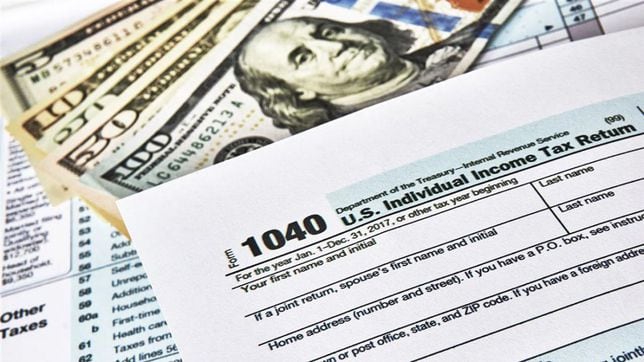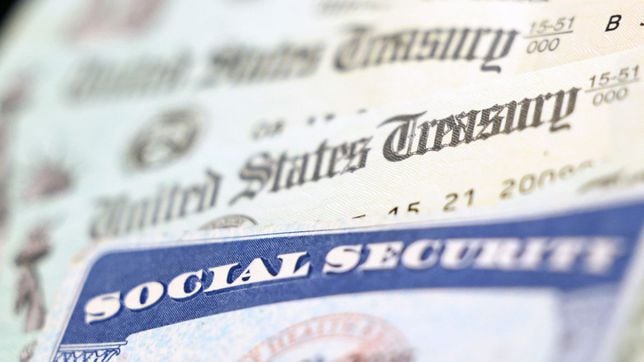Inflation Relief Checks: summary news 12 December
Follow all the latest financial news and information on measures being taken to tackle inflation and programs to help American households cope and more.


Show key events only
US Inflation Relief: Latest Updates
Headlines: Monday, 12 December 2022
- Price of gasoline continue to go down now averaging just over $3.26 nationally
- Higher than expected wholsale prices sent stock markets lower at close of week
- Markets making gains on Monday
- Fed Chair suggested that elevated interest rates will remain, policymakers to meet this week
- Biden administration has canceled $24 billion in student loan debt
- California could become the first state to enact a windfall profits taxon gas companies
- Supplemental Security Income recipients will be thefirst to see the COLA applied to their checks
- California continues distributing Middle-Class Tax Refund, with payments already benefiting 19 million residents
- Experts predicting a significant market adjustment in house prices
- Some groups will receive two Social Security checks this month
Related news
In October, the average monthly benefit for Social Security recipients was $1,676.53. Next year, when the Social Security Administration applies the 2023 Cost-of-living adjustment, that amount could grow by around $146 to $1,822 a month.
This increase is short of the $200 some retirees had hoped to see their benefits rise by, as many seniors on a fixed income struggle to keep up with inflation.
Read more on the increase in our full coverage.
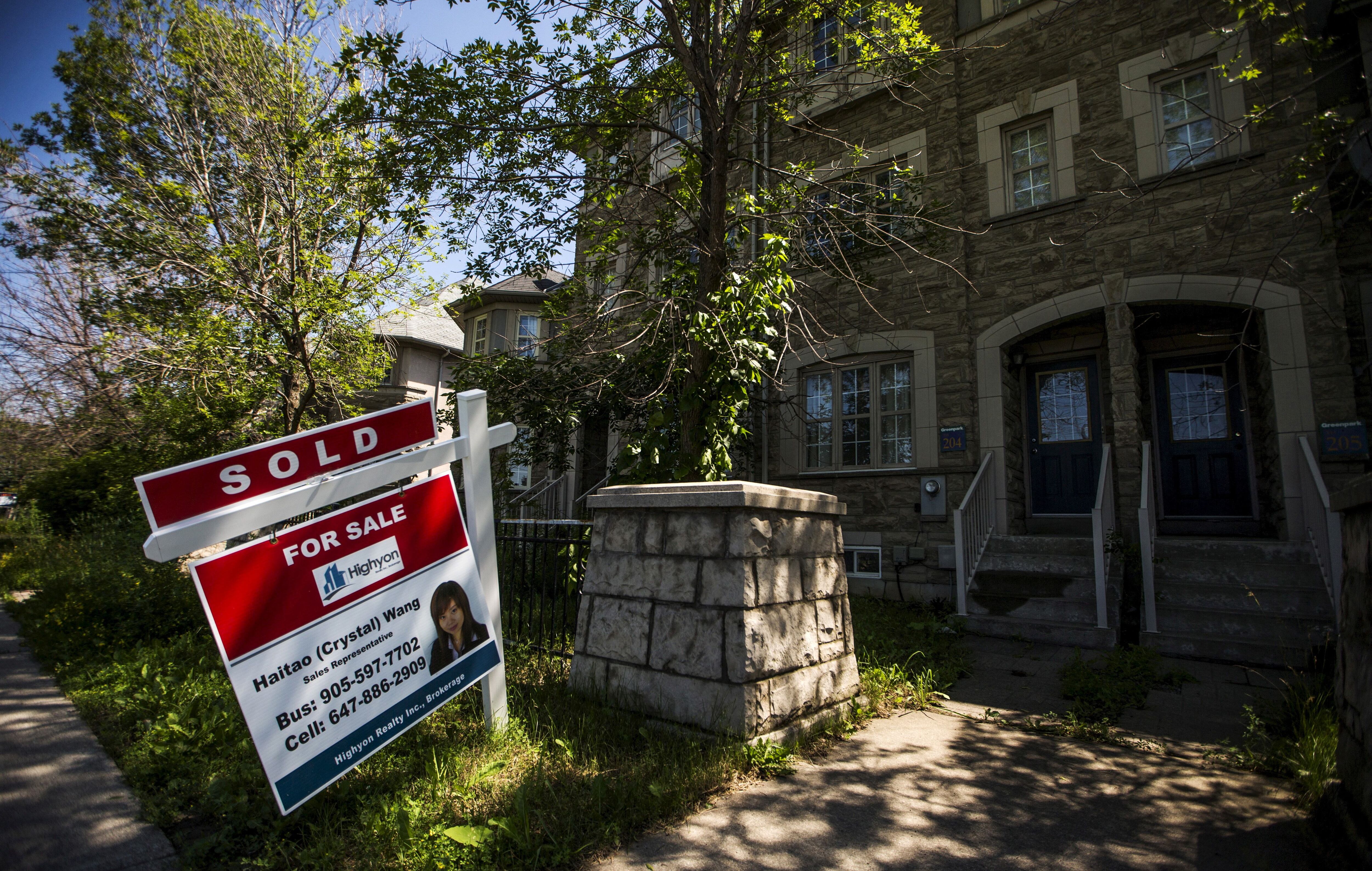
FILE PHOTO: A "For Sale" sign stands in front of a home that has been sold in Toronto, Canada, June 29, 2015. REUTERS/Mark Blinch/File Photo / Mark Blinch / REUTERS
Which states have seen the highest increases in housing prices since 2019?
Since the Federal Reserve began to increase interest rates earlier this year, the price of a mortgage has shot up dramatically. This comes as housing prices decrease across the country as some potential buyers are priced out, unable to afford a six or seven-percent interest rate on what would be their monthly mortgage payment. However, compared to prices a few years ago, before the pandemic set the housing market on fire, the value of homes are still way up.
Which states have seen the highest increases since 2019?
1. Idaho: 68.47%
2. Arizona: 67.79%
3. Utah: 60.59%
4. Florida: 59.80%
5. Montana: 57.28%
6. Washington: 54.57%
7. Tennessee: 54.07%
8. North Carolina: 53.90%
9. Georgia: 53.45%
10. Nevada: 50.70%
Source: Zillow
US economy has a path forward without going into recession
Inflation in the United States has been coming down after reaching levels not seen in four decades. However, it is taking its time to drop back to where the Federal Reserve likes to keep it despite aggressive rate hikes.
Those had sparked fears that policymakers' might push the US economy into a recession. The mood has now changed though. Mark Zandi, Chief Economist at Moody's Analytics, explains what path the US has to avoid a recession.
The California Franchise Tax Board has released the complete schedule for the remaining inflation relief payments. Here’s when to expect them…
Markets betting that Federal Reserve will be able to avoid recession
The Federal Reserve began raising interest rates in March to tackle rampant inflation, which was expected. However, when policymakers jacked rates by three-quarters of a percentage point in June it set off alarm bells that it would plunge the US economy into recession.
Three more rate hikes of the same magnitude have only added to those fears and talk of doom and gloom has been the norm. But an analysis by Goldman Sachs shows that the mood is changing and investors are betting on the central bank pulling of a soft landing, avoiding a deep recession.
Fed Chair Jerome Powell signalled last month that while more increases would be coming, future ones could be smaller. Policymakers will meet this week to decide the path moving forward where they are expected to raise rates by half a percentage point.
The Social Security Administration (SSA) announced an 8.7 percent cost-of-living adjustment increase for 2023 in October. The boost to Social Security benefits is the largest since 1981 and the fourth biggest in the history of COLA increases.
The increase will affect payments for old-age, survivor and disability benefits as well as Supplement Security Income, which will be the first payments to reflect the augmented amount hitting bank accounts 30 December 2022. The 2023 COLA increase will also be applied to government and military pensions along with VA benefits.
The Keystone Pipeline, with a capacity of over half a million barrels, has been shut now for 4 days, and this likely will start having an effect on some refineries in the Plains and Midwest very soon. It could soon have an impact on gas prices with no estimated restoration date.
The pipeline was shut late Wednesday night due to a leak and release of an estimated 14,000 barrels, and while cleanup is underway, TC Energy has said it has not found the problem yet.
Gas prices are down but Keystone Pipeline leak could reverse trend
Gas prices fell below the level they were a year ago last week and have continued to go lower. The national average per gallon is just above $3.26. However, that downward trend could reverse after the Keystone Pipeline experienced the worst leak in its history.
The 14,000 barrel spill forced the temporary shutdown of the pipeline that ferries over 600,000 barrels per day of crude from Canada to the Gulf Coast and refineries in the Midwest. It has been offline since late Wednesday and if it isn't reopened in the next couple of days drivers could see the price at the pump start to go up.
Starting in 2023, the Internal Revenue Service (IRS) will send more money in refunds to certain taxpayers.
Who will they be? AS' Daniela Barrera has the details.
Mortgage rates see largest drop since 2008
Mortgage rates have decreased for four straight weeks dropping three quarters of a point from their recent peak. The trend has been driven by worries that the US economy will enter a period of lackluster growth.
According to Freddie Mac the current rate US weekly average as of 8 December is 6.33% for a 30-year fixed-rate mortgage. Despite the largest decrease since 2008 there hasn't been a major rise in demand among homebuyers.
Renting or buying a house? Which will be cheaper next year? Here are the predictions for 2023, based on a forecast by real estate market company Zillow.
Two main factors have put the brakes on the US housing market over the past few months. The Federal Reserve’s aggressive rate hikes to fight inflation have helped to drive up mortgage interest rates on top of home prices increasing at a breakneck speed over the previous two years.
This could create a situation in 2023 where homebuyers will be better positioned when negotiating the purchase price when hunting for a home. Here’s a look at what the experts are saying to expect in the coming year.
Don't bank on Biden student loan debt forgiveness surviving Supreme Court
The US Supreme Court agreed to hear arguments on the legality of President Biden's executive order canceling up to $20,000 of federal student loan debt. Lawyers will present their case to the justices in February but a ruling might not be forthcoming until June.
Borrowers that have been hoping for relief from the financial burden aquired getting a higher education may be in for a disappointment though according to experts. The conservative majority on the court has been aggressive at striking down actions by government agencies that it sees as having exerted too much authority and violating the separation of powers.
The White House announced a plan to wipe out up to $20,000 in student debt in August. However, that program has been put on ice after being challenged in the courts and it could be months until there is a definitive decision on the matter.
In the meantime, President Biden has extended the moratorium on repaying student loans until the end of August or the lawsuits are settled, whichever comes first. But even if White House lawyers should fail to convince the Supreme Court of the legality of Biden’s debt forgiveness, there exist other legitimate federal programs that can erase all of a borrower’s student loan debt. Here’s a look…
Watch out for scams related to student loan debt forgiveness
US phone companies have been blocked from accepting calls from a small communications company accused of sending robocalls offering fraudlent aid for student loan debt relief. The Federal Communications Commission imposed the ban after investigating tens of millions of calls that have gone out in recent months claiming to be from student loan centers.
Most of the calls referenced President Biden's student loan debt forgiveness program, which is currently held up by lawsuits. The caller would demand either personal information or a fee in order to receive up to $10,000 in debt cancelation.
None of the student loan debt cancelation, forgiveness or discharge programs require a fee to process and are done through Federal Student Aid.
Hello, and welcome to AS USA
Hello, and welcome to AS USA's blog on inflation relief and financial news. We’ll keep you up to date on measures that have been approved in states around the US to help residents cope with the high prices.
We'll also track what the government is doing to bring inflation to heel and how markets are reacting.
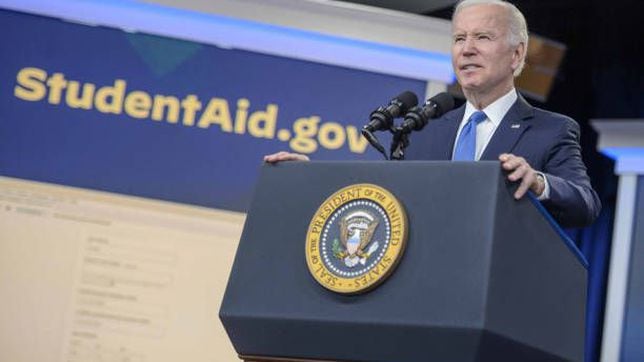


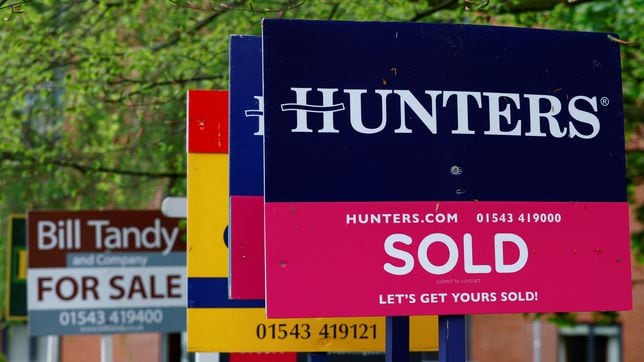
/cloudfront-eu-central-1.images.arcpublishing.com/diarioas/V7BG6CM35JB65GOT2UIXFYMPUY.jpg)
